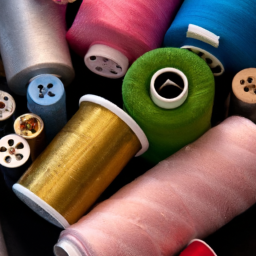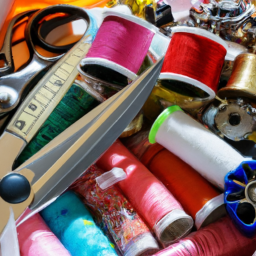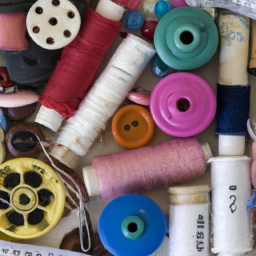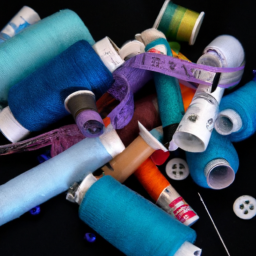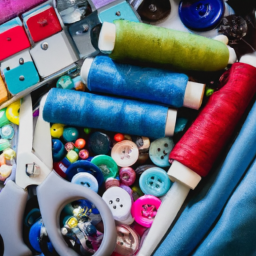

When it comes to sewing, choosing the right material is essential to achieve professional-looking results. The material you select can greatly impact the overall aesthetic, durability, and functionality of your project.
Consider the Purpose
Before beginning any sewing project, it’s important to consider the purpose of the final product. Will it be used for clothing, home decor, or accessories? Each purpose may require a different type of fabric.
Fabric Types
There are numerous fabric types available, and each has its own characteristics and recommended uses:
- Cotton: A versatile fabric suitable for various projects. It’s breathable and easy to work with.
- Denim: Sturdy and durable, perfect for jeans, bags, or jackets.
- Silk: Known for its luxurious feel, silk is often used for evening wear or formal attire.
- Wool: Warm and comfortable, ideal for winter clothing or blankets.
- Linen: A lightweight fabric that’s great for summer clothes or home decor items like curtains.
- Canvas: Thick and heavyweight fabric, often used for bags or upholstery.
Consider Texture
Texture plays a significant role in the overall appearance of a sewn project. Some fabrics have a smooth finish, while others may have a textured or patterned surface. Consider the desired texture and how it may enhance or detract from your design.
Colours and Patterns
The choice of colors and patterns is another important aspect of sewing material selection. Solid colors provide a classic and timeless look, while patterns can add interest and uniqueness to your creations. Consider the overall theme or style you wish to achieve and select materials that align with your vision.

Quality Matters
Investing in high-quality fabrics will ensure longevity and durability for your finished products. Cheaper materials may unravel easily or fade quickly, compromising the overall quality of your work. It’s worth spending a little extra to obtain fabrics that will stand the test of time.
Preparation and Care
Remember to follow fabric care instructions and considerations before starting your project. Different fabrics may require different treatments such as pre-washing, ironing, or dry cleaning. Neglecting these steps can lead to shrinking or distortion of the final product.
Conclusion
Choosing the right sewing material is crucial for achieving the desired outcome in your projects. Consider the purpose, fabric type, texture, colors, and patterns, and always opt for quality materials. Taking the time to select the appropriate materials will significantly impact the overall success and longevity of your sewn creations.
Happy sewing!
